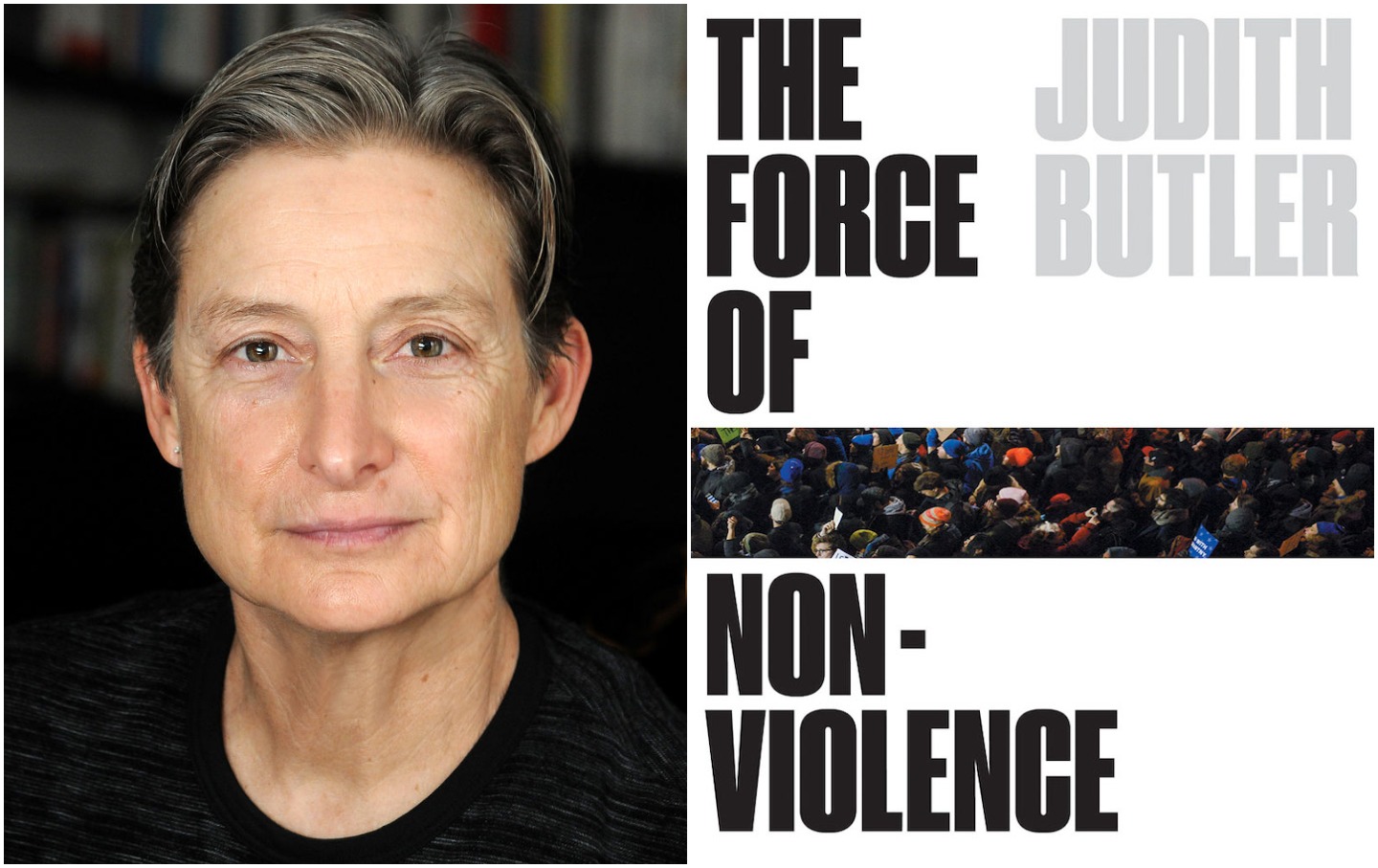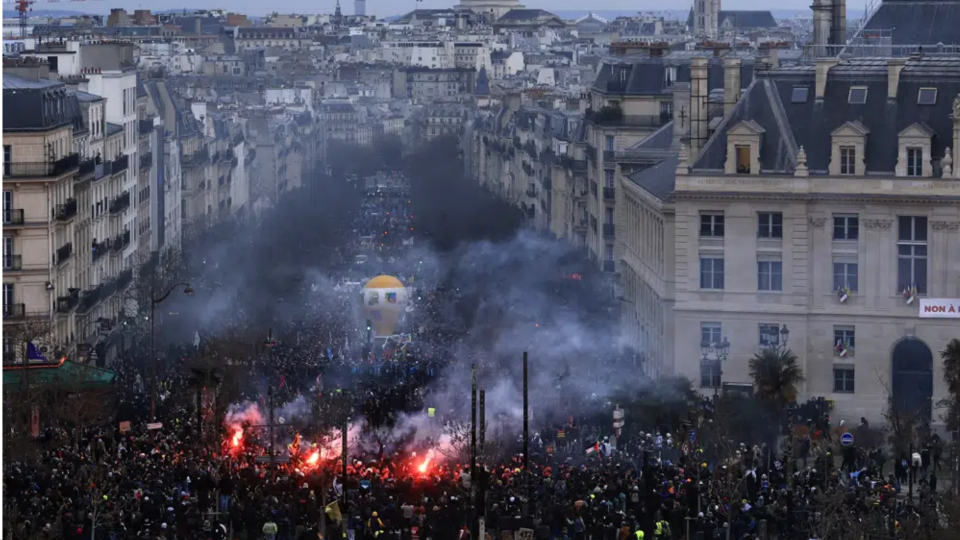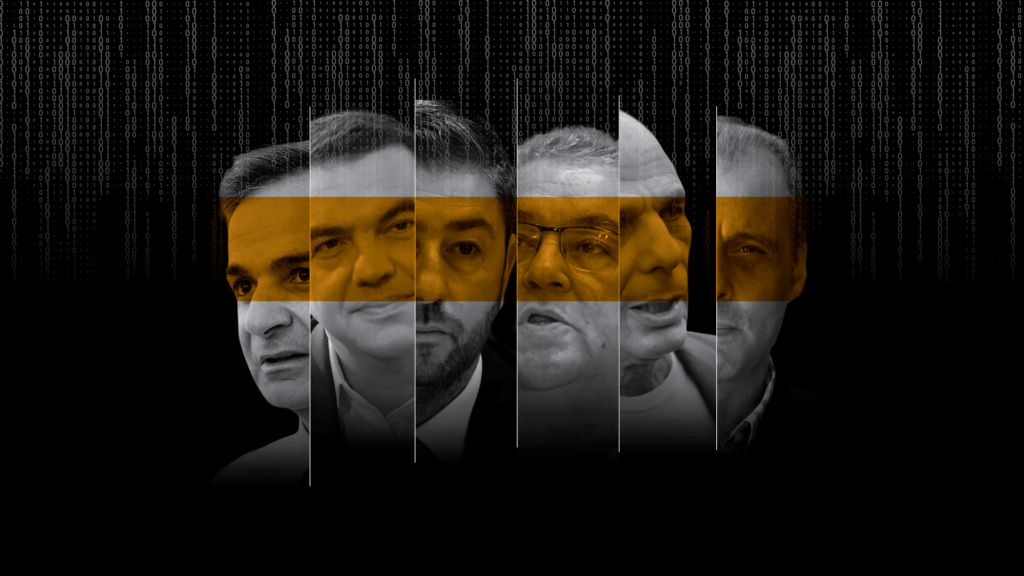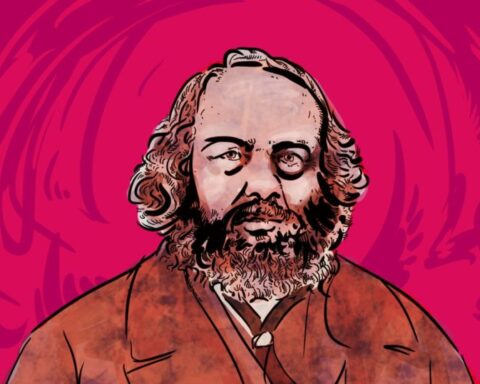Judith Butler, in her book “The Force of Nonviolence-An Ethico-Political Bind”, attempts to show that the practice of non-violence, less as a moral practice and more as a political practice, does not imply a passive attitude towards the violence of capitalist domination, but, on the contrary, constitutes a form of aggressive resistance, which, while not taking on violent characteristics, is at the same time a critique in itself of individualism as it results from the practices of capitalist domination.
It is admittedly a laborious attempt to define non-violence as that practice which, stemming from a set of values and perceptions, escapes the established order while at the same time constituting the means for the projection into the field of reality of an experiential experience that brings within it the potentiality of a different/antagonistic world. This is, as already said, an attempt that is quite interesting in order to define non-violence in opposition to state-dominant violence, while remaining an attempt that politically moves within the limits of an immature social democracy, while at the level of political theory it is presumed to be a perspective, manifestly erroneous and deafeningly ungrounded, the result of Butler’s manifest failure to understand the threads that link capitalist domination to violence and violence to the zones of regime power.

Non-violence in the first place in no way constitutes a practice of crystallizing a radical critique of individualism, precisely because non-violence as an individual choice, as it can only be seen as such, flows from the resources of capitalist domination which promotes the platform of non-violence for the dominated while retaining the right to exercise legitimate violence for itself, since the exercise of violence or the threat of violence by sovereignty does not constitute an anomaly artificially hooked into the regulation of its realization, but, conversely, is an inevitable as well as organic function of it. Hence, the acceptance of non-violence at the individual level, constitutes in fact an adoption on the part of the dominated of the aims, aspirations and normative framework of the realization of politics as shaped by capitalist domination as an ejection of the historical correlation of power, which is logically concealed by Butler, as he prefers to interpret politics in the field of a molecular competition, concluding almost teleologically in a moralistic moralism, no matter how persistently he exorcises it.
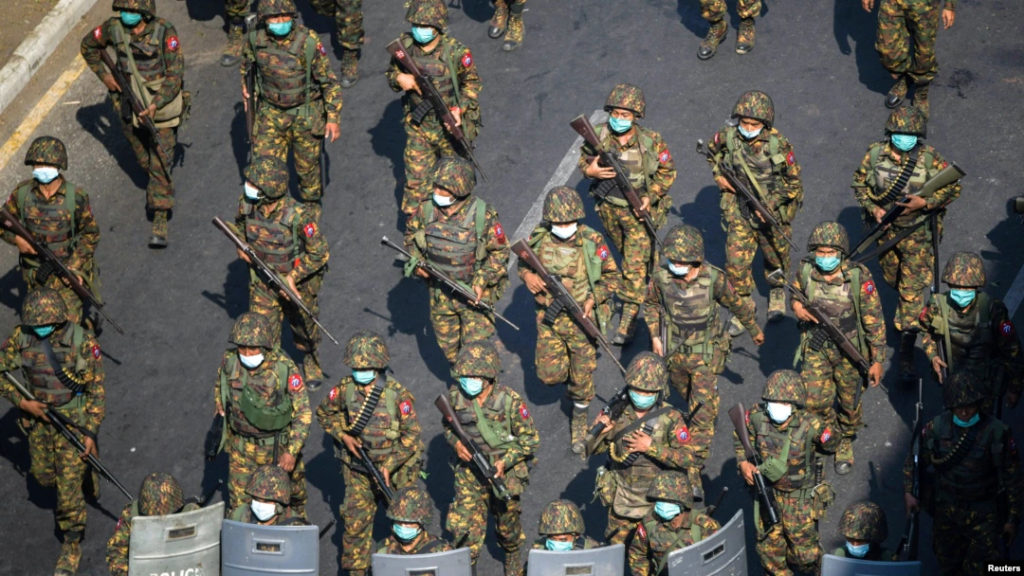
Furthermore, the exercise of violence on the part of capitalist domination does not constitute a wrong moral choice, or a conjunctural practice that arises as an open moment of the regime, as essentially state violence constitutes an inclusive expression of capitalist domination and its aggregate component, which ensures its maintenance and perpetuation as a perpetual self-fulfilment.
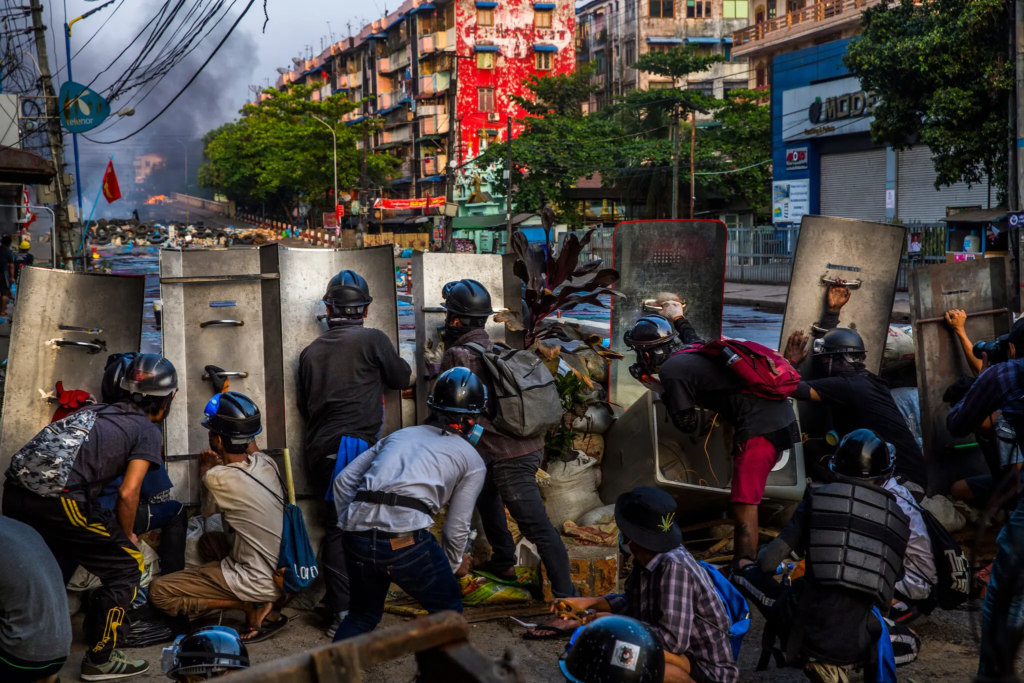
On the contrary, the violence exercised by the dominated, that is, by the outcasts of the capitalist territory, does not constitute the inverted mirror image of state violence as Butler implicitly and timidly concludes, and this is precisely why the exercise of violence by the outcasts does not, in the context of a virulent quota, burden the world we live in with additional violence, making it unlivable, since the violence of the dispossessed is the violence that claims life, freedom, the dismantling of the established order, in order to free and liberate the world from the violence of capitalist domination. In this perspective, Butler’s thesis that versions of non-violence can include strikes or boycotts as “strategies of demolition” of regime functions, although it could be dismissed as patently untenable even by someone who has observed a strike from a safe distance, will be adhered to, because the notorious “demolition strategies”, claiming, in the context of a theoretical absurdity, laurels of originality, constitute nothing more than the embellished version of a systemic negotiation between the abolitionists and the regime, in order to reach a mutually beneficial agreement within the framework of a consensual process in which both parties have renounced violence.
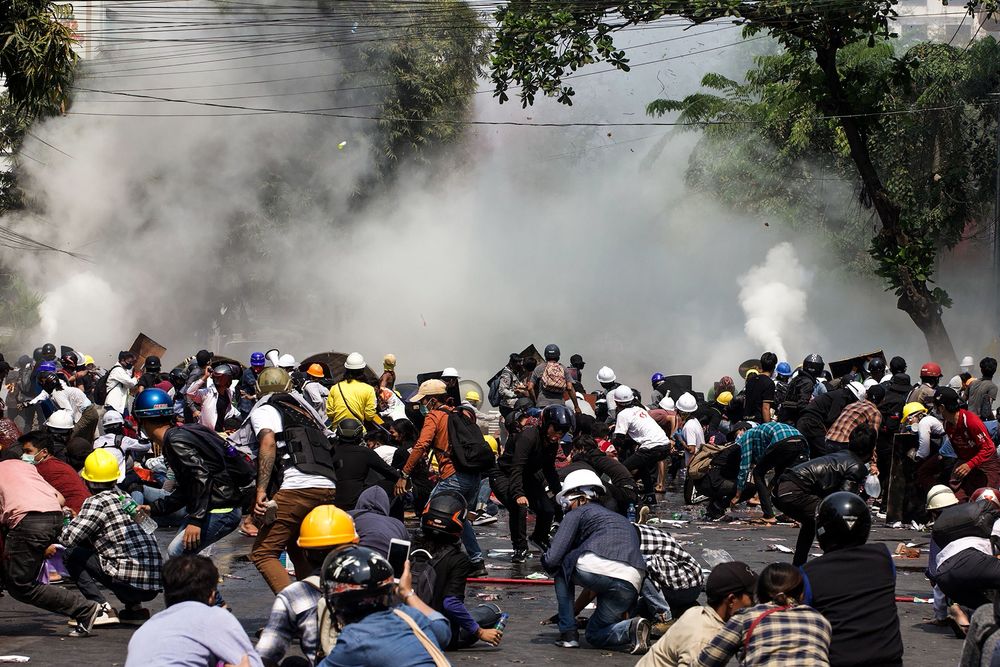
It should be pointed out here that any form of movement that does not fall within the framework of institutional politics constitutes an expression of primary violence in the sense that it rejects the red zones of any negotiation and, in addition, does not abrogate its inalienable right to make qualitative and quantitative use of those forms of violence that correspond to the ontological load of the mobilisation. A movement that demands new carpets and fresh coffee in the banquet hall at UC Berkeley is obviously using forms of non-violence to satisfy its demands. Of course, it cannot be defined as a movement, but rather as a pressure group for the improvement of the conditions of entertainment of the high intelligentsia, so that the latter can analyze with the necessary alacrity the proper political practices of non-violence. In real life, however, where the class burden is unbearable even for the willingly blind, a movement like Black Lives Matter, or like the movement in Chile, or like the Black Panthers, it would be and is at the very least grotesque to sign an advance declaration of legitimacy and renunciation of all forms of violence, thus contributing, according to Butler, to not overheating the planet with new amounts of violence that will make our lives unbearable. But because life is unbearable the dominated are and will be subjected to various forms of violence in order to break through the boundaries that separate them from a world that can potentially exist only on the debris of existing domination, provided that this domination is recognized as it really is : Catholic, monolithic, and extremely cannibalistic.
Here, of course, lies the dominant differentiation of Butler and other theorists of the same school: they are unable or choose to forget the capitalist state as the main agent and instrument of an unbridled, perpetual and uninterrupted violence that constitutes the pillar of domination, nourishes it, while at the same time being nourished by pacifism, capitulation and the defeat of the dominated. Violence, revolutionary violence, which denies existing law and existing sovereignty, posits new law and claims a new sovereignty as the holistic counterpoint of the existing one. Precisely for this reason, abolitionist violence does not seek oases of freedom within the regime, it does not politically and theoretically plead for a certain orderly transition to a better world, it does not succumb to theoretical paradoxes like Butler’s, which essentially embellish capitulation by presenting cubism as an inspired theory, it does not get trapped in a theoretical as well as political framework that, within an unrealistic dream, imagines that the guards of the regime will hand over the keys of the Panopticon to the inmates in the context of a smooth linear transition to a new idyllic state.
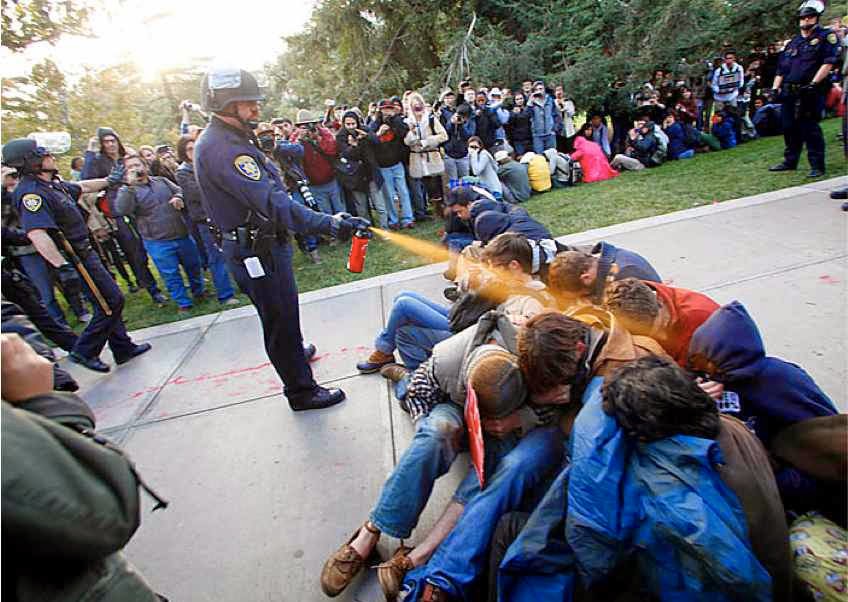
Essentially and ultimately, Butler’s vision leads to the realm of actual politics, to the creation of martyrs, calling for social movements to commit suicide within a postmodern theology that speculates that molecular, scattered and disorganized actions that flagrantly ignore the violence that made them possible, as well as the agent of this violence, will be able to undercut the power of the real while remaining bound by a social contract that is now a dead letter.
All that will ultimately remain will be the unending mourning and verbose obituaries for a battle that never began.
________
written by Christos Miamis, PHD Candidate at Panteion University of Social and Political Sciences – Athens / Greece
SEE ALSO
